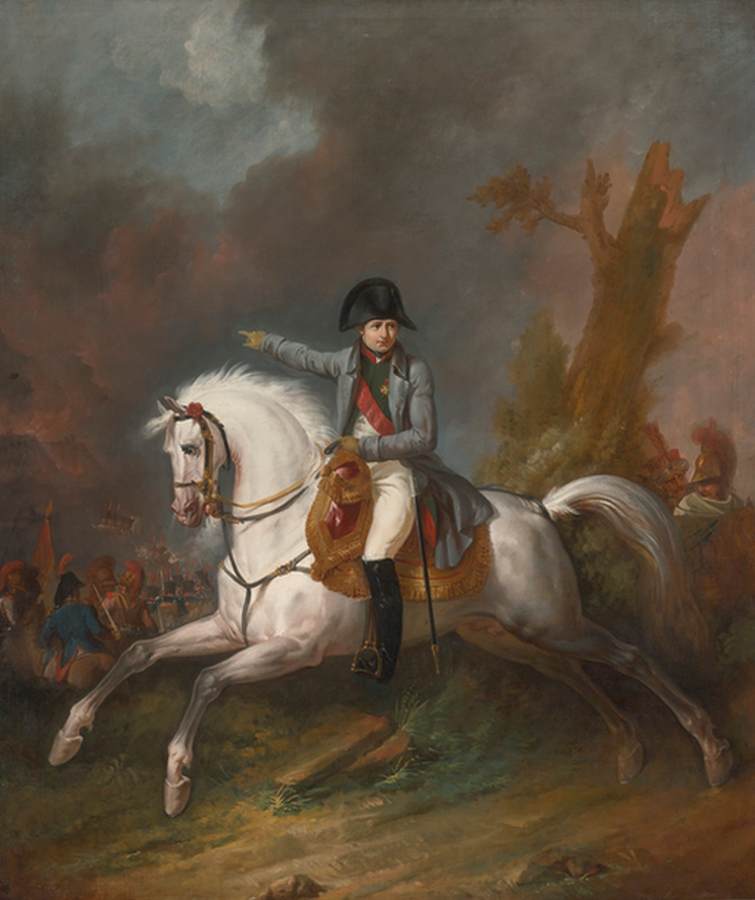Description
The painting "Equestrian Portrait of Napoleon" by artist Carle Vernet is a masterpiece that stands out for its artistic style, composition, and use of color. Originally 153 x 130 cm in size, this piece captures the majesty and power of the French Emperor Napoleon Bonaparte on horseback.
Vernet's artistic style is characterized by his ability to depict action and movement. In this painting, we can appreciate how the artist manages to capture the energy and dynamics of the figure of Napoleon on horseback. Vernet uses loose, gestural brushwork, giving the work a lively, vibrant look.
The composition of the painting is impressive. Vernet places Napoleon at the center of the work, highlighting his figure and his leadership. The emperor is shown upright and powerful, with a determined gaze towards the horizon. The choice of the horse's position and its posture also contribute to conveying the feeling of movement and power.
As for color, Vernet uses a rich and varied palette. Warm, earthy tones dominate the painting, creating an atmosphere of warmth and strength. Gold and silver accents on Napoleon's attire add a touch of opulence and luxury.
The history of this painting is fascinating. It was commissioned by Napoleon Bonaparte in 1810 to commemorate his victory at the Battle of Wagram. The work captures the triumphant spirit of the emperor and his military dominance. However, despite its propaganda intent, the painting was never publicly exhibited during Napoleon's reign.
A little-known aspect of this work is that Vernet was not only an outstanding painter, but also an expert in horsemanship. This allowed him to accurately capture the anatomical details and movement of the horses in the painting. His knowledge of the subject is reflected in the realistic and dynamic representation of the equestrian figure of Napoleon.
In conclusion, the painting "Equestrian Portrait of Napoleon" by Carle Vernet is a masterpiece that stands out for its artistic style, composition, and use of color. Through his dynamic and powerful representation, Vernet manages to capture the essence of Emperor Napoleon Bonaparte and his historical legacy.

